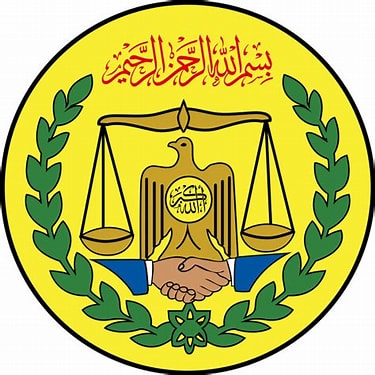Find Your Dream Jobs

Market and Agribusiness Development Specialist
Job role insights
-
Date posted
April 24, 2025
-
Closing date
April 24, 2025
-
Hiring location
Hargeisa
-
Qualification
Master
-
Experience
5-6 Years
Description
Job description
MINISTRY OF AGRICULTURE AND DEVELOPMENT
SOMALILAND FOOD SYSTEMS RESILIENCE PROJECT (SL-FSRP)
REQUEST FOR EXPRESSION OF INTEREST (REOI)
Individual Selection of Consultant
Country: Government of Somaliland
Project ID No: P177816
Name of Project: Food Systems Resilience Program for Eastern and Southern Africa (Phase 3) FSRP
Consulting Service: Market and Agribusiness Development Specialist
Individual/firm: Individual
Duty Station: Hargeisa
Deadline: 22nd May 2025
Ref Number: SO-MOAD-SL-474505-CS-INDV
1. BACKGROUND OF THE PROJECT
Somaliland Food Systems Resilience Program for Eastern and Southern Africa (Phase 3) FSRP is part of a regional initiative by the World Bank to provide a comprehensive framework for intervention at both the national and regional levels. This Multi-phase Programmatic Approach (MPA) aims to tackle the underlying structural challenges of food insecurity and reduce beneficiaries' vulnerability to unpredictable climate, crisis, and conflict events
The Project Development Objective (PDO) of the project is ‘to increase the resilience of food systems and the Somaliland’s preparedness for food insecurity in project target areas. The project has six components namely: Component 1: (Re-)Building Resilient Agricultural Production Capacity; Component 2: Supporting the Sustainable Development of Natural Resources for Resilient Agricultural Landscapes; Component 3: Getting to Market; Component 4: Promoting a Greater Focus on Food Systems Resilience in National and Regional Policymaking; Component 5: Contingent Emergency Response Component; Component 6: Project Coordination and Management.
The Somaliland FSRP will directly benefit an estimated 65,000 of small farmers, agro-pastoralists, and nomadic pastoralists, at least 30 percent of which will be women. In addition, the project will support value chain stakeholders including women-owned agribusiness enterprises, financial services providers, disruptive Agriculture Technology start-ups, agricultural research and extension institutions. Within the public sector, the project will also build the capacity of Ministry of Agriculture Development, Ministry of Livestock and Rural Development and Ministry of Environment and Climate Change, and other institutions to implement resilience- focused policies. Therefore, the Ministry of Agricultural
The Market and Agribusiness Development Specialist (MADS) is responsible for coordinating market and agribusiness development activities within the project. This includes (i) coordinating the development and implementation of market linkages strategies and agribusiness development plans in alignment with project objectives; (ii) providing technical guidance on improving the market access for smallholder farmers, enhancing value chain integration, and supporting the development of agribusinesses; (iii) preparing annual work plans and budgets for market and agribusiness activities; (iv) providing technical assistance in the development of market systems and agribusinesses within the project scope; (v) contributing to progress reports, including monitoring and evaluation of market and agribusiness activities, and ensuring compliance with procurement, contract management, and environmental safeguards; (vi) collaborating with the Project Coordination Unit (PCU) to ensure smooth execution of activities; and (vii) working closely with key stakeholders, including private sector partners and local entities, to support the development of terms of reference and manage the selection and contracting processes for market and agribusiness services.
The MoAD seeks to recruit a qualified individual to serve as the Market and Agribusiness Development Specialist (MADS) for this project under the terms specified in the Terms of Reference (TOR).
2. RESPONSIBILITIES: The Market and Agribusiness Development Specialist (MADS) will work closely with the Project Coordination Unit (PCU), relevant government focal points, and development partners to ensure the successful implementation of market and agribusiness activities. Key responsibilities include:
· Coordinating the development and implementation of the agribusiness development strategy for the project, ensuring alignment with national and regional priorities.
· Supporting the creation of market linkages and value chains by identifying potential market opportunities for agricultural products.
· Providing technical support to value chain stakeholders, particularly women-owned agribusiness enterprises and agricultural technology startups.
· Assisting in the formulation and implementation of market development activities, including the identification of key business models and market entry strategies.
· Overseeing the capacity building of key stakeholders involved in agribusiness, including training and providing advisory services.
· Supporting the integration of inclusive approaches to market and agribusiness development, ensuring that women, youth, and marginalized groups are included in project activities.
· Coordinating the preparation of work plans and budgets related to market and agribusiness activities, ensuring effective resource allocation and management.
· Contributing to monitoring, evaluation, and reporting of market and agribusiness activities, ensuring alignment with the project’s overall goals and objectives.
Skills and qualifications
1. SELECTION CRITERIA: The selection will be based on the qualifications, experience, and skills of the candidate, followed by an interview. The criteria include:
· Master's degree in Agricultural Economics, Economics, Cooperative Development, Marketing, Agribusiness, Rural Development, or a related discipline.
· Minimum 5 years of professional experience in market and agribusiness development, with a focus on agriculture or rural development.
· Proven experience in facilitating value chain development, including analysis, business model identification, and capacity building for value chain actors.
· Strong knowledge of agricultural value chains and market systems, particularly in relation to smallholder farmers and rural businesses.
· Demonstrated experience in developing market development strategies, identifying business models, creating market linkages, and fostering productive alliances and business partnerships for agri-business opportunities.
· Experience in working with a variety of stakeholders, including private sector actors, government agencies, development partners, and agribusinesses.
· Demonstrated ability to provide technical support, training, and capacity building to agribusinesses, producer organizations, and other stakeholders.
· Strong communication, leadership, and interpersonal skills, with the ability to work effectively in a team-oriented, multicultural environment.
· Proficiency in using relevant software for data management, analysis, and reporting.
· Fluency in both written and spoken English, with strong report-writing skills.
2. REPORTING
The Agricultural Research and Seed Systems Specialist will report directly to the Project Coordinator at the Ministry of Agricultural Development.
3. DURATION OF ASSIGNMENT
The Consultant will be contracted for a period of eight (8) months, with the possibility of extension for up to two (2) additional years based on satisfactory performance, need for the role and availability of funding.
How to apply
The Ministry of Agricultural Development now invites eligible Individual Consultants to express their interest in providing the above-mentioned services. Interested candidates must submit the following documents: (i) an updated Curriculum Vitae (CV) with at least three reference contacts; (ii) copies of academic qualification certificates; and (iii) a cover letter demonstrating their suitability for the assignment.
Attention of interested Consultants is drawn to section III, para 3.14,3.16 & 3.17 of the World Bank’s Procurement Regulations for IPF Borrowers: Procurement in Investment Projects Financing Goods, Works, Non -Consulting and Consulting Services, July 2016, revised November 2017, 2018, 2020, September 2023 and February 2025 (“Procurement Regulations”), setting forth the World Bank’s policy on conflict of interest.
A Consultant will be selected in accordance with the Individual Consultant method set out in the World Bank Procurement Regulations.
Interested applicants may obtain further information including the detailed Terms of Reference from the Ministry in person or by e-mail to the address given below during office hours from 8.00 a.m.– 3.00 p.m. Saturday to Thursday. The ToR is also available on our website: https://sl-fsrp.org/vacancies-and-tender/.
Submission deadline; Deadline; Expressions of Interest (EOI) and CV must be delivered to the address below by hand, mail, courier or email on or before 22nd May 2025 at 3:00 PM East Africa Time (EAT). The subject line of the email should clearly state: “Market and Agribusiness Development Specialist (MADS)- Expression of Interest.”
Project Coordination Unit (PCU)
Ministry of Agriculture Development (MoAD)
East of Assod Hotel, Sha’ab Area, Hargeisa, Somaliland
Attn: Mrs. Zamzam Ahmed, Procurement Specialist
Email: procurement@sl-fsrp.org
Overview
Somaliland has an ancient history and civilization
For a long period in the past, Somaliland had well-established trade links with the rest of the world particularly ancient Egypt (the Pharaohs), the Romans, the Arabian Peninsula and the Indian sub-continent
Commodities like hides and skins, frankincense and myrrh, ivory, gums, feathers were traded in exchange for consumer products such as sugar, tea, dates, clothes etc
It was uniquely the hub of spices trade (Frankincense and Myrrh)
The trade links to the Middle East and East Asia existed via the Red Sea and the Indian Ocean routes. The Republic of Somaliland is located in the Horn of Africa
It has the Gulf of Aden to the North and shares borders with Djibouti in the West, Ethiopia in the South and Somalia in the East
It has an area of 176,119 square Kilometers and a coastal line which stretches up to 800 Km along the Red Sea
In terms of area it would have ranked 37th in Africa, which means there are 18 countries with smaller areas than Somaliland in the continent
It is home to a population of four million
The capital, Hargeisa, is a metropolis with an estimated population of over one million
The national language is Somali but both English and Arabic are widely spoken. Somaliland, due to its strategic location near Bab el Mandeb, at the entrance to Gulf of Aden and the Red Sea, has always been of interest for strategic and commercial reasons
In the mid16th century, the great Ottoman Empire annexed the port of Zeila and provided protection, at a cost collected through customs and other charges, for Arab, Persian and Indian merchants who serviced the trade requirements of the surrounding area and the Abyssinian hinterland
In 1870 the ambitious Khedive Ismael I of Egypt, whose country was nominally part of the Ottoman Empire, obtained the Ottoman Sultan’s authorized rights over Zeila in exchange for paying an annual fee of sterling pounds 18,000
The Khedive in due time acquired the coast between Bulhar and Berbera without reference to the Sultan. In 1877 Britain signed a convention recognizing the Khedival annexation of all the East African coast north of Ras Hafun (the promontory of land jutting out into the Indian Ocean south of Cape Gardafui). The agreement stipulated that no portion of this area should be ceded to any foreign power and that British consular agents should be appointed at places on the coast
The Sultan of Turkey, hitherto not very interested in any land east of Zeila, generating, however, a piqued interest of the Ottoman Empire. As Egypt had opened the Suez Canal in 1869, Egyptian interest shifted more on the coastline rather than the interior
At coastal locations lighthouses, harbors, piers, blockhouses, and barracks were constructed, and running water supplies engineered
Some of these facilities have lasted until recently. In 1884 Egypt was facing the Mahdist revolt in the Sudan and for financial reasons (dictated by Britain) had to curtail its projects along the Somaliland coast
By agreement with Britain the Egyptian flag remained flying in Somaliland but Egyptian troops and officials were withdrawn and replaced by very few British troops, ships and officials from Aden. With the departure of the Egyptians and the possibility that other colonial powers had their eyes trained on the potentials of the Somaliland coasts and its hinterland, Britain had to act fast
The British colonial office expedited Major A
Hunt of Great, representing his government, to draw up protection treaties with several Somaliland clans
Britain wooed Somaliland clan leaders with a promise of protection, guaranteeing them full support in case of an attack from other neighboring territories, which were then occupied by other Europeans (See the Map of Africa by Treaty written by Sir E
Hertslet)
On their part, the clan elders of the day refused to grant the British the right to land unless they agreed to their terms.
Categories
Company size
Founded in
2010


